Disappearing Ink - FriXion Pen
Give someone special a note that requires heat to decode the message. You won’t believe what the ink in this pen will do. Your message […]
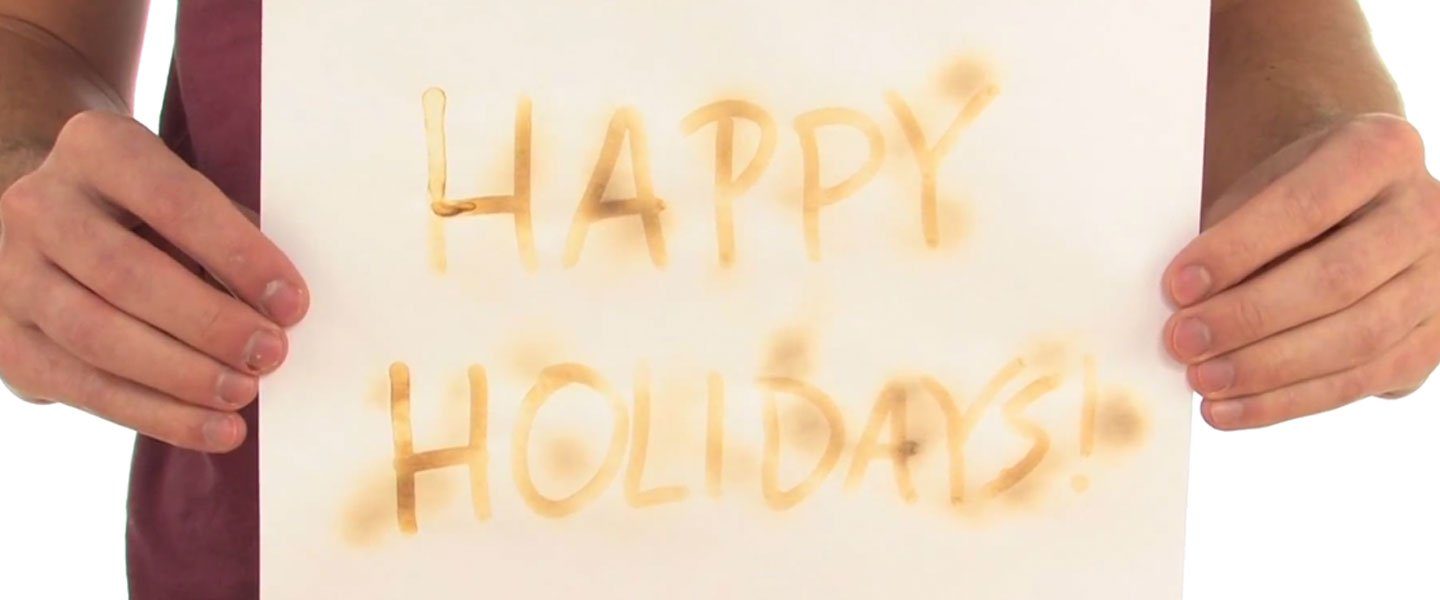
Lemon juice can spark up a salad, add zing to some grilled fish, and keep your avocados and bananas from turning brown. Strangely, however, it turns paper brown and reveals secret messages you’ve written using plain old lemon juice. You can be a gourmet cook and a spy at the same time. Learn all about oxidation in this experiment.
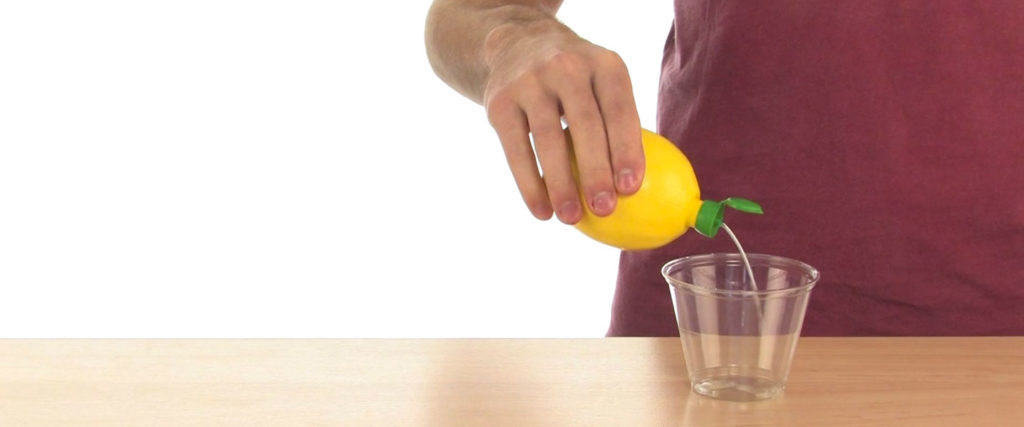
Add about 1 tablespoon (15 ml) of lemon juice to the cup. Fresh squeezed or bottled juice will work just fine.
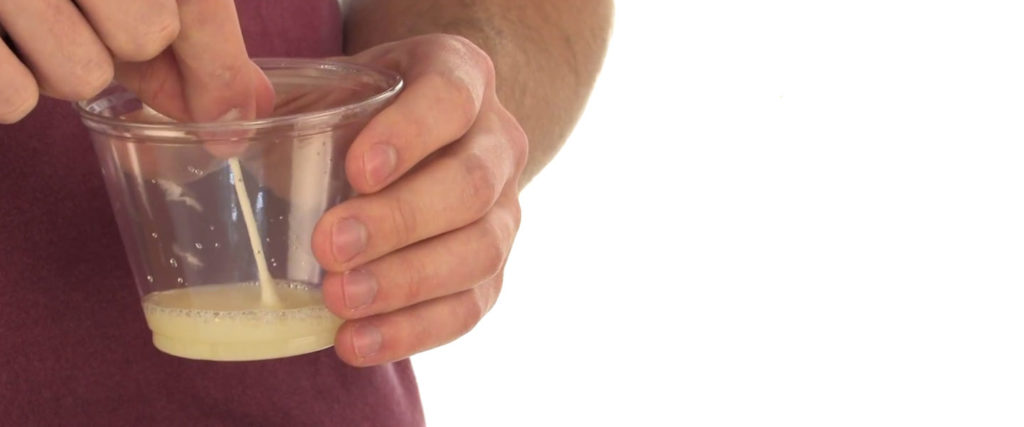
Soak an end of the cotton swab or put the paint brush into the lemon juice. You’ll use this to write your message.
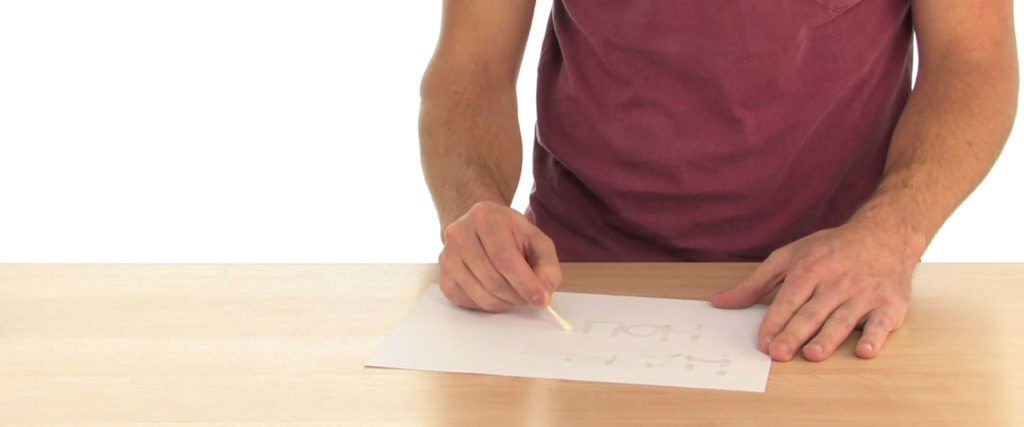
Write your message on the plain paper. You’ll be able to see it as long as the paper is wet. Let the lemon-juice message dry completely.
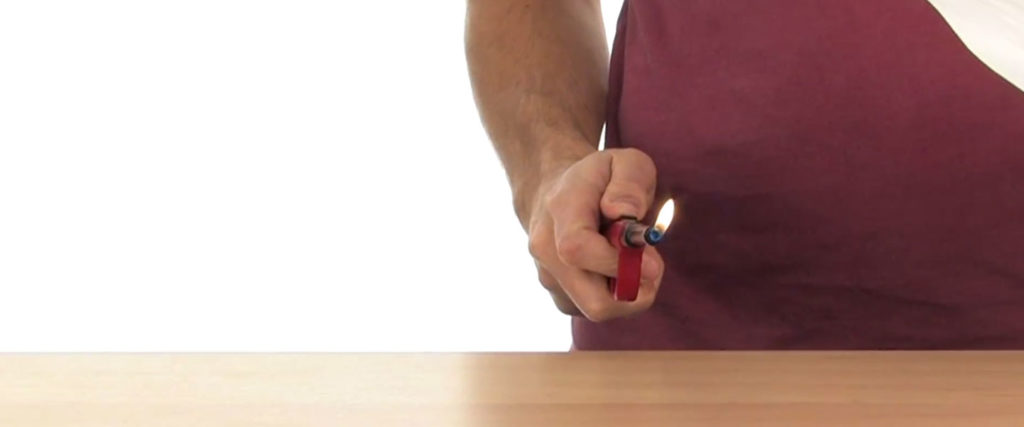
There’s no rush to revealing the message but when it comes time to read it, there are several methods of heat sources. NOTE: If you choose the open flame method, make sure an adult helps out. Setting the message and/or yourself on fire are not what you want to do. Whichever method you choose, start at the bottom of the message and work your way up since heat rises.
Here are some options:
Most invisible ink messages can be revealed by heating either side of the paper on which they’re written. The message discolors before the rest of the paper gets hot enough to do so. When you wrote your message using the lemon juice, carbon-based compounds in the juice were absorbed into the paper’s fibers. Also, since lemon juice ink is a weak acid, it softened the fibers in the paper. The added heat caused some of the chemical bonds to break down in the dried juice and some carbon was cut loose. When the carbon came into contact with air, it burned or oxidized. One effect of oxidation is things turn a darker color. (Some oxidation doesn’t need heat to occur; it just needs a little air. Think of a piece of apple, banana, or pear left out on a plate for a while.)
Lemon juice – like most fruit juice – contains carbon compounds. These compounds are pretty much colorless at room temperature. Heat breaks down these compounds and releases the carbon. When carbon comes in contact with air (specifically oxygen), oxidation occurs and the substance turns light or dark brown. If it oxidizes long enough, it can go all the way to black.
Some secret messages are written with one kind of chemical and made visible by spraying or wiping them with a second chemical. Other messages are revealed by shining ultraviolet (UV) light on them. Another way to read the lemon juice message is to put salt on the drying juice. After a minute, wipe off the salt and then use a wax crayon to reveal the message.